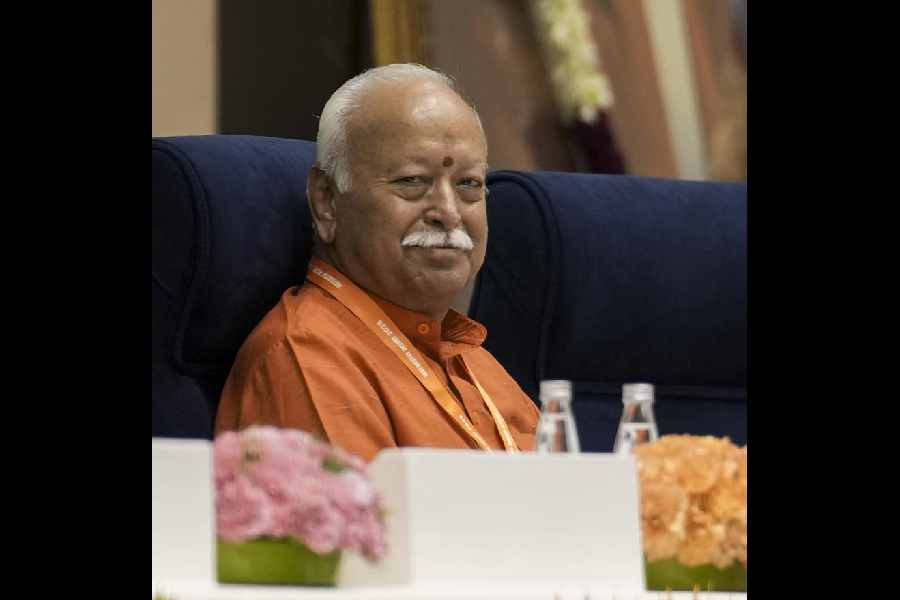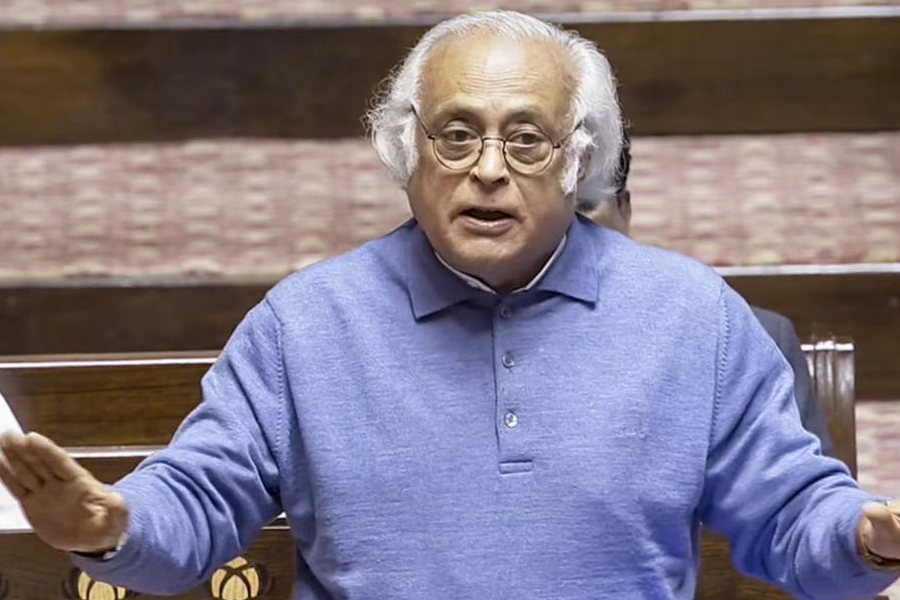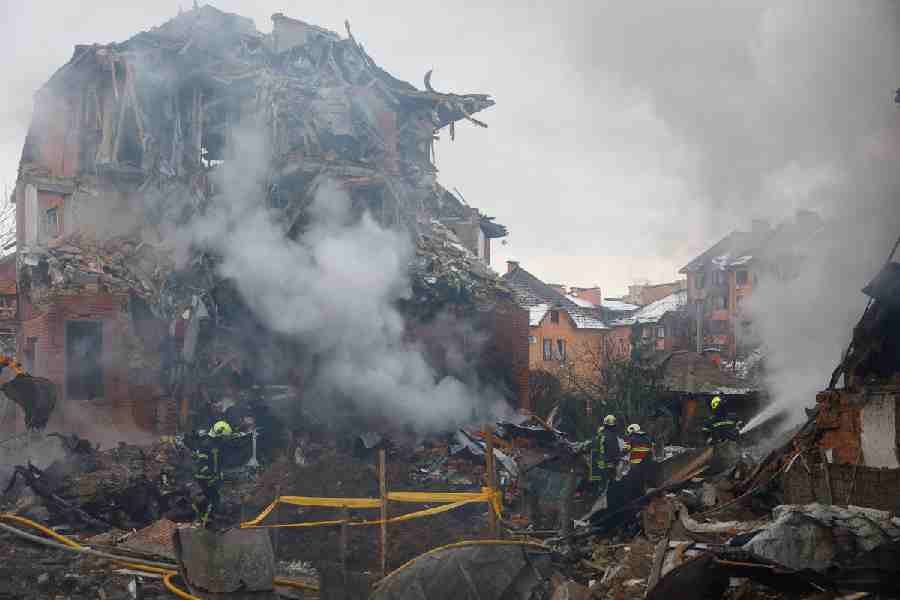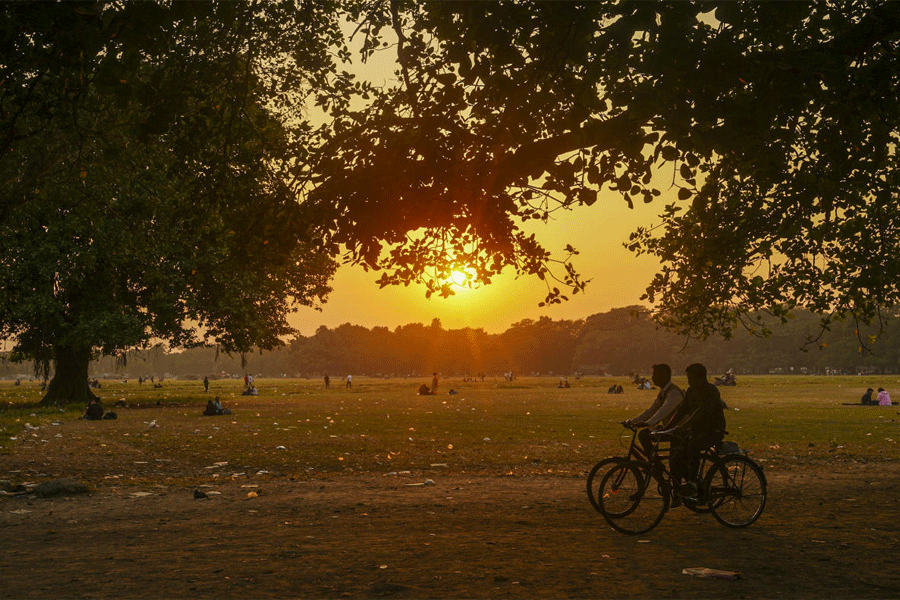Language diplomacy
The Rashtriya Swayamsevak Sangh chief, Mohan Bhagwat, strove for a global outreach during his three-day lecture series in Delhi to mark 100 years of the outfit. Along with politicians, bureaucrats, judges, academicians and several prominent personalities from various fields, foreign diplomats were also invited to the lectures. There was an arrangement for live translation of his speech in Hindi into three prominent world languages — English, Spanish and French. The announcement from the stage at Vigyan Bhawan urged diplomats to put on headphones and press the number for their desired language of translation. The high point, however, was on the third day, when Bhagwat chose to speak in English to answer the questions posed to him. He spoke fluently. Many saw this as an indirect attack on the Union home minister, Amit Shah. Last month, Shah had stirred controversy with his statement that those who speak in English in India would “soon feel ashamed”. On the contrary, Bhagwat seemed to speak in English with pride. Additionally, in reply to a question about the language row in the country, the sangh chief said that there was nothing wrong with learning English as a language. “English is just a language, what’s the harm in learning a language?” he queried.
Image curation
The image-building exercise being undertaken by the Union education minister, Dharmendra Pradhan, has not gone unnoticed by his political rivals. Pradhan, who has been quite active in visiting schools and other establishments and in taking part in cultural festivals across Odisha, is now the subject of speculation for his
emergence as a rival to the chief minister of Odisha, Mohan Charan Majhi.
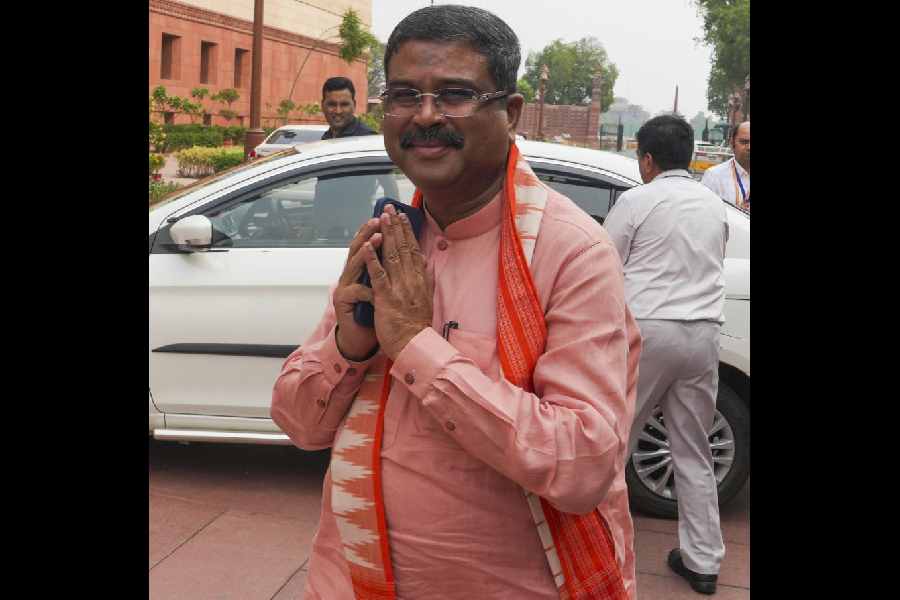
Union Minister Dharmendra Pradhan at the Parliament House complex during the first session of the 18th Lok Sabha, in New Delhi, Tuesday, June 25, 2024. PTI
Pradhan, once the face of the Bharatiya Janata Party in the state, has been sidelined by the Majhi government. With questions being raised over Majhi’s inefficiency, Pradhan is slowly positioning himself as a major force in state politics once again. As a part of the effort, he brought 20 journalists from Delhi recently to witness the Nuakhai festival, which mar ks the onset of agricultural activities in the state. Nuakhai is the main festival of western Odisha with Sambalpur, Pradhan’s own constituency, being the nerve centre of the festivities. The Biju Janata Dal member of the Rajya Sabha, Sulata Deo, wrote on Facebook that it seems that the Union minister is angling for the chief ministerial post. “He is working hard for a change in Odisha,” she wrote sarcastically.
Writing on the wall
The posters welcoming participants in the run-up to the conference of elected panchayat members of the National Democratic Alliance in Guwahati prominently featured the Asom Gana Parisha brass: Atul Bora and Keshab Mahanta. Although it was a joint conference of elected members of the BJP and its allies, the posters left the AGP squirming because the invite mentioned only the BJP as the host. This triggered a social media avalanche and left most people wondering whether the two AGP leaders have officially joined the BJP.
Clarifications soon ensued with the AGP describing it as a printing mistake. New posters with the AGP as the co-host came up around the city to dispel rumours. The botch-up — deliberate or inadvertent? — could not have come at a more inopportune time. The AGP, which ruled Assam twice but is today reduced to a supporting role in the ruling coalition, is currently struggling with infighting over ticket distribution for the 2026 assembly polls. Party insiders said that the humiliation of the AGP top brass might give an upper hand to the BJP during talks on ticket distribution.
Low value
The distinction between the values of the American and the Indian cannabis recently became a point of contention in the Delhi High Court when it was hearing the bail plea of a man accused of being part of an international drug syndicate on account of being caught with narcotic substances. The court was convinced to grant him bail after observing the quantity of cannabis recovered from him. But the prosecution argued that the accused is not entitled to bail based on the quality of the ganja seized. The prosecution reasoned that while the Narcotic Drugs and Psychotropic Substances Act does not make any distinction between the Indian and the American ganja, the American cannabis which was recovered from the accused is much more expensive than the Indian variety. However, the court observed that merely because American ganja is more expensive, the culpability does not increase and granted him bail.

